Introduction
- First-generation college students are defined in the study as “students whose parents or guardians have not achieved a bachelor’s degree” (Gariott et al., 2015).
- One of the unique characteristics: psychological issues related to the surpassing their family (guilt, an increasing gap in interests and worldview, lack of support) (Gariott et al., 2015; Olive, 2014).
- More likely to drop out of college and subsequently more likely to dismiss or drop out of university (Schelbe et al., 2019).
- Significant gender gap in learning outcomes and academic performance resulting in female’s lower resilience rates (Smith et al., 2019).
- 10 high-impact practices implemented at higher educational institutions aimed at enhancing students’ performance, produced by the Association of American Colleges and Universities (AAC&U) (Johnson & Stage, 2018). The more students engage in these practices, the higher their learning outcome is.
Purpose of the Study
To analyze the causational role of psychological issues related to surpassing family members on fist-generation students’ engagement in high-impact practices introduced by AAC&U. The particular focus is on gender and family structure as factors influencing the learning process and conditions of support.
Research Question
Does the lack of family members/guardians support and first-generation students’ feeling of guilt prevent first-generation students from engaging in high-impact learning practices?
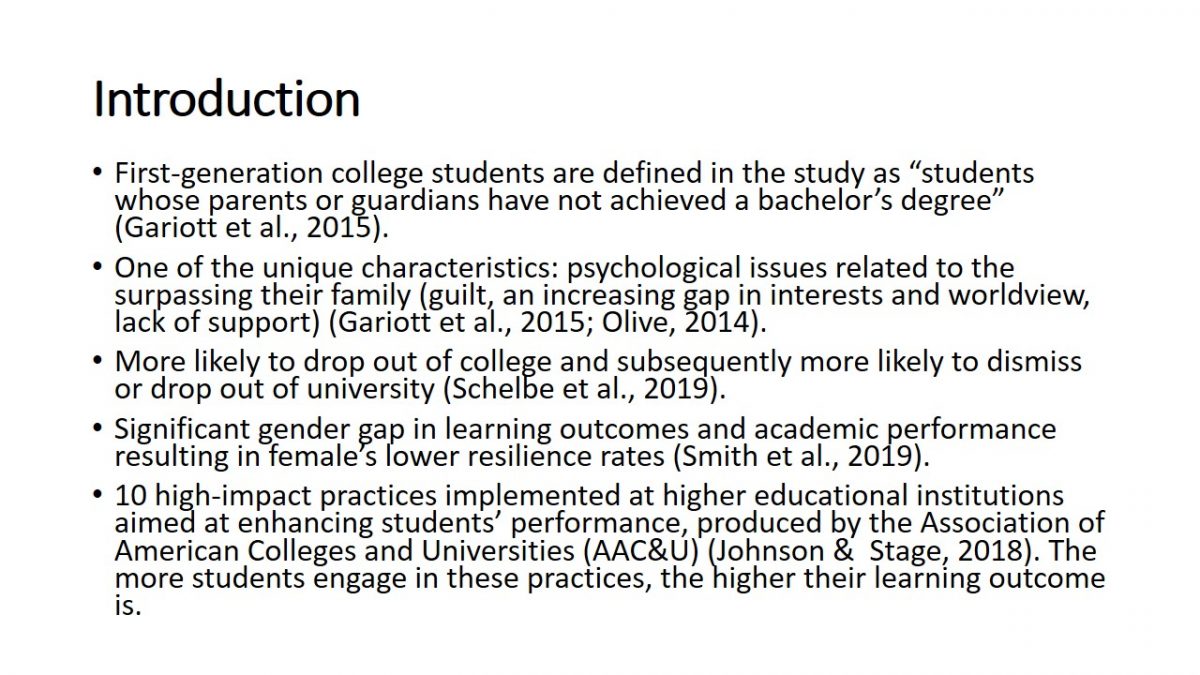
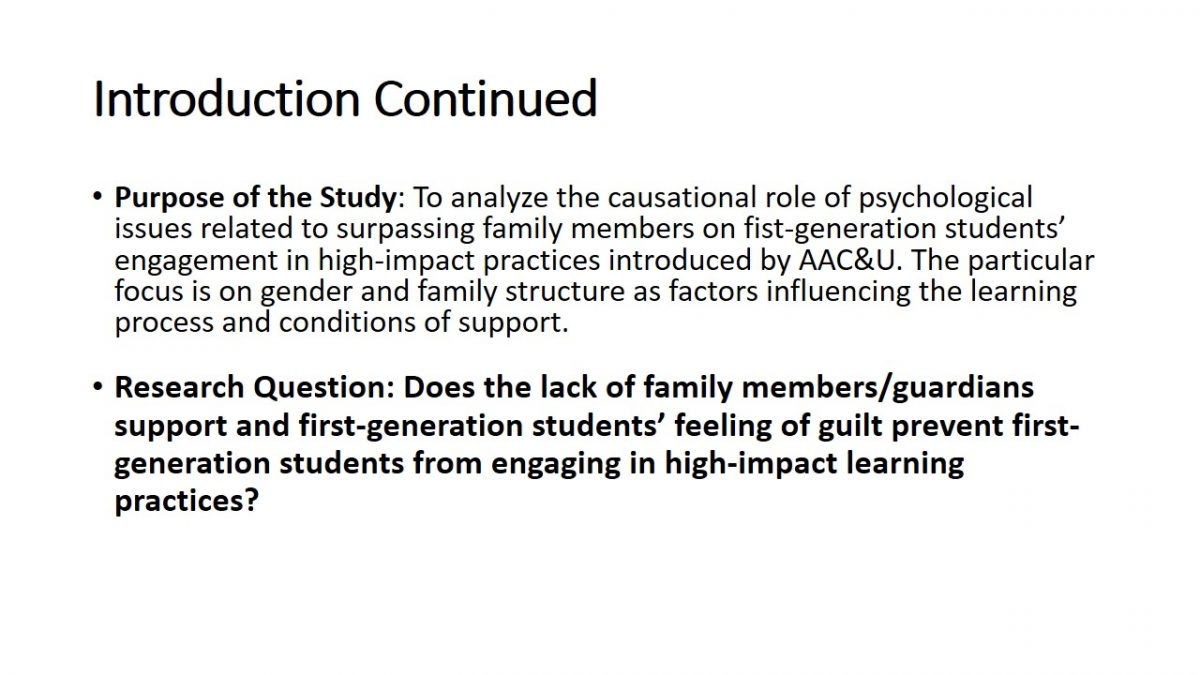
Procedures
- Philosophical Assumptions or worldview: Constructivist worldview. Individuals socially construct their meanings and worldviews; these meanings guide and result in actions and general attitudes.
- Qualitative Design: Open-ended interviews with first-generation students and members of their families.
- Role of the researcher: Adherence to the research ethics, including non-disclosure of collected data; responsibility and sensitivity regarding sensitive questions.
- Data Collection Procedures: Snowball sampling (Noy, 2008). Used to minimize the costs of the research, as well as to soften the reaching of the respondents. The interviews are recorded and transcribed to the texts and also supported with field notes.
- Data Analysis Procedures: Grounded theory, codes are developed using the Descriptive Phenomenological Method developed by in Giorgi, 1985 (cited in Olive, 2014).
- Strategies for Validating Findings: Respondent validation to ensure transferability.
- Proposed Narrative Structure of the Interviews:
for students: description of oneself, the reason of enrolling higher education, one’s average day at the college, activities one is engaged in, their awareness of and engagement in high-impact activities, a story of one’s family: how many members there are, what the relations are, how they perceive one’s enrollment in higher education institutions;
for family members: description of oneself, how they perceive their relative’s enrollment in higher education institutions, their expectations from this relative (what they would like them to become in future), description of their relations with this relative. - Anticipated Ethical Issues: respondents’ avoidance of answering or overreacting to sensitive topics, the researcher’s influence on the family situation, the researcher’s capacity to maintain impartiality.
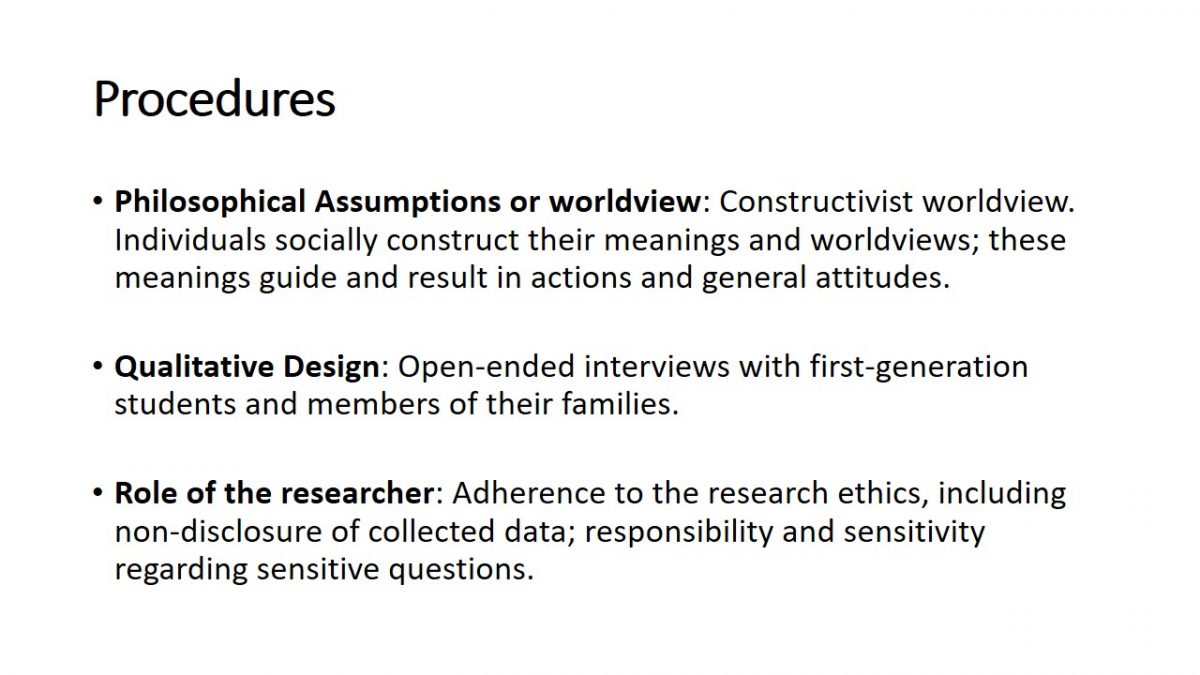
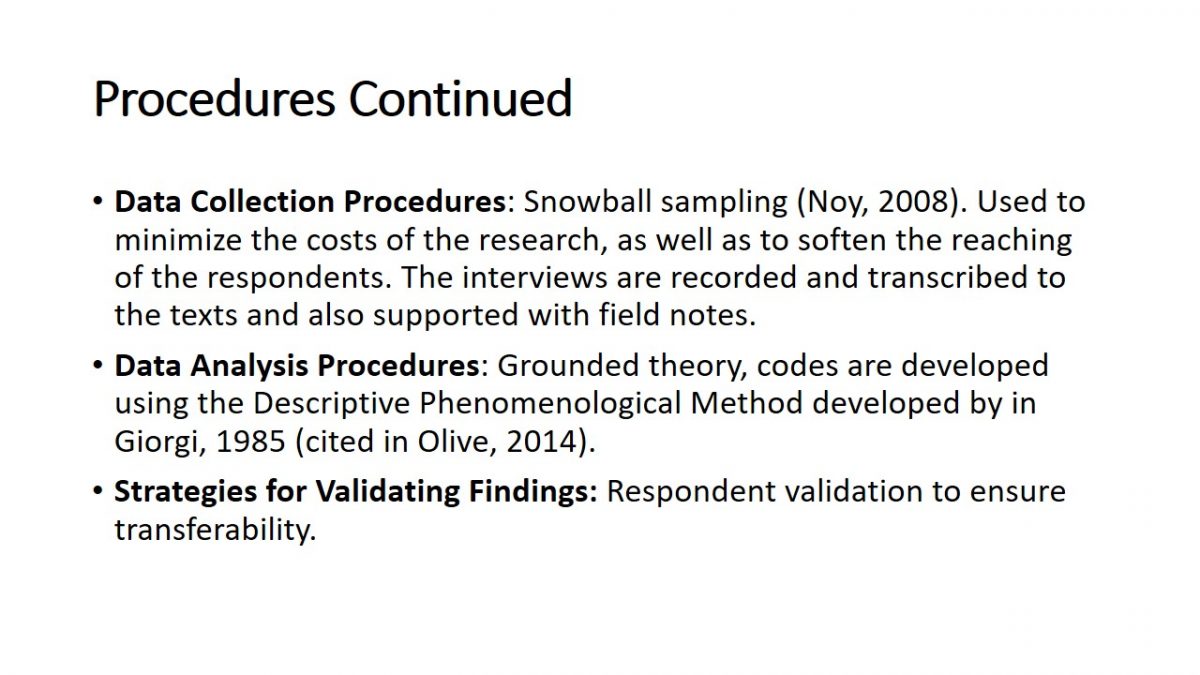
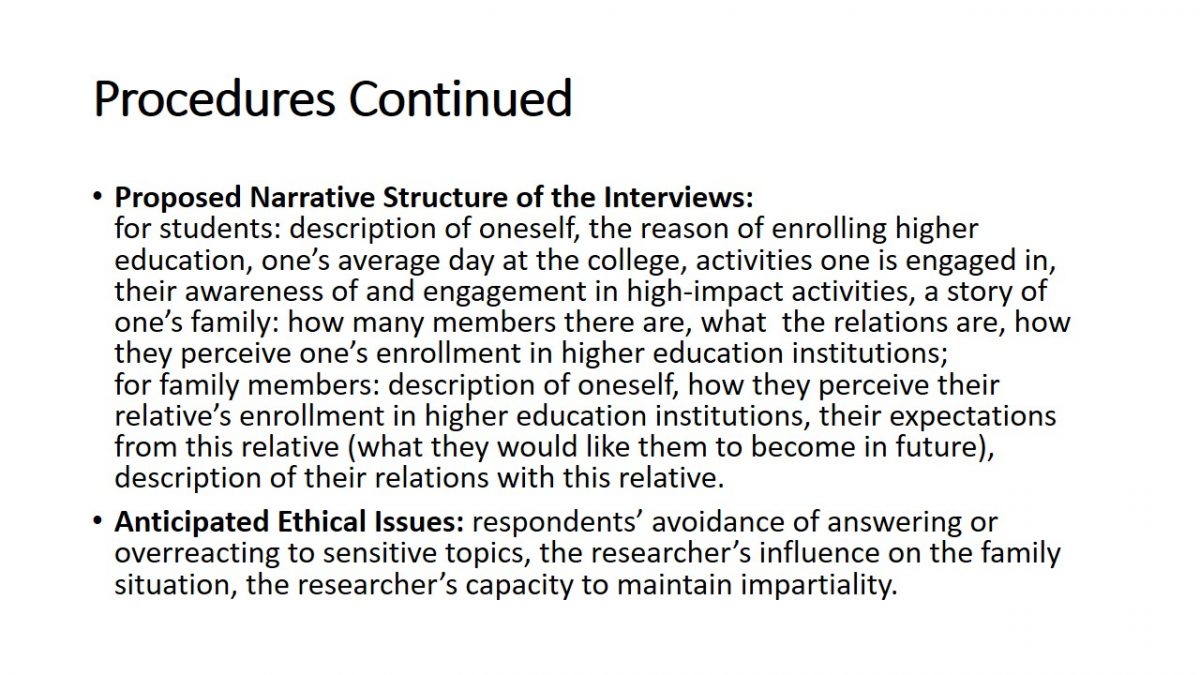
Expected Findings
Since the high-impact practices aim at enhancing students’ performance (Johnson & Stage, 2018), it is important to provide students with the best opportunities to engage them. First-generation students are at a higher risk since they are 8.5 times more likely to drop out of higher education (Olive, 2014). For the reason first-generation students experience psychological issues related to surpassing family members in education (Garriott et al., 2015), we suggest that family relations play an important role in shaping first-generation students’ activities.
The main expected result: first-generation students’ engagement in high-impact learning practices depends on their family relations. The more support family members provide, the more likely students are to engage in further learning opportunities.
We also expect:
- female individuals to be less supported and exhibit more psychological stress for the reason they are seen by family members as mothers;
- the family structure will influence the attitudes of family members towards one engaged in higher education.
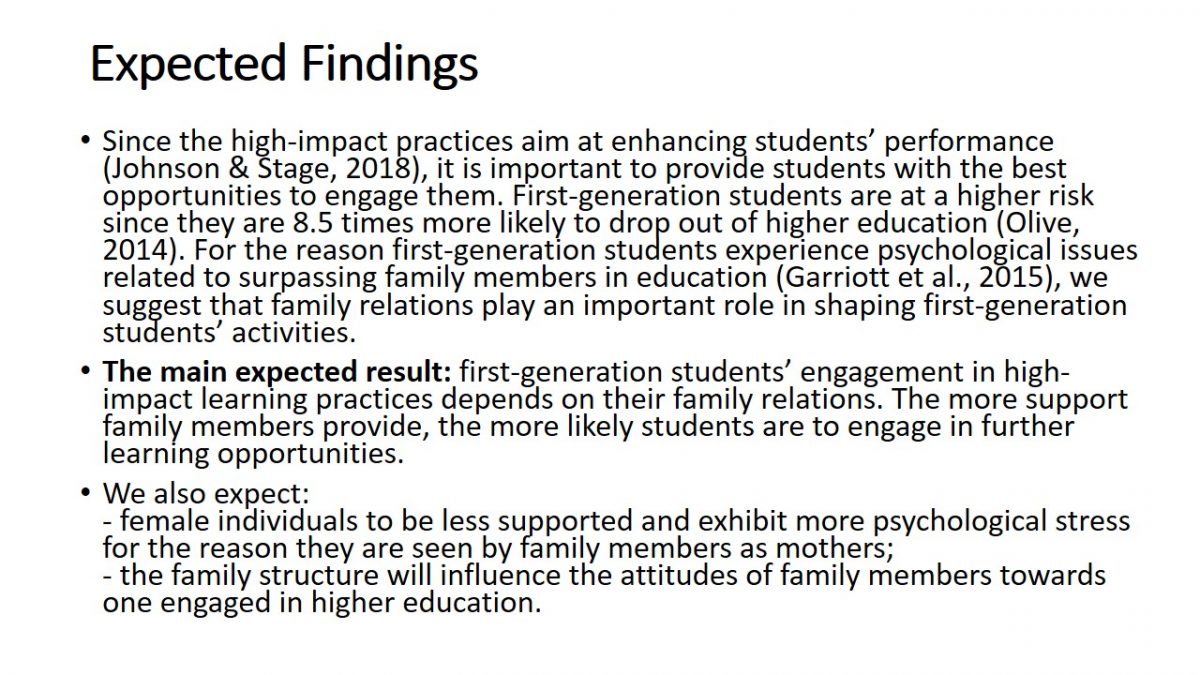
References
- Garriott, P. O., Hudyma, A., Keene, C., & Santiago, D. (2015). Social cognitive predictors of first and non-first-generation college students’ academic and life satisfaction. Journal of Counseling Psychology, 62(2), 253-263.
- Johnson, S. R., & Stage, F. K. (2018). Academic engagement and student success: Do high-impact practices mean higher graduation rates? Journal of Higher Education, 89(5), 753-781.
- Noy, C. (2008). Sampling knowledge: The hermeneutics of snowball sampling in qualitative research. International Journal of Social Research and Methodology, 11(4), 327-344.
- Olive, T. (2014). Desire for higher education in first-generation Hispanic college students enrolled in a graduate counseling program. Journal of Phenomenological Psychology, 45(1), 72-91.
- Schelbe, L., Swanbrow Becker, M., Spinelli, C., & McCray, D. (2019). First generation college students perceptions of an academic retention program. Journal of the Scholarship of Teaching and Learning, 19(5), 61-76.